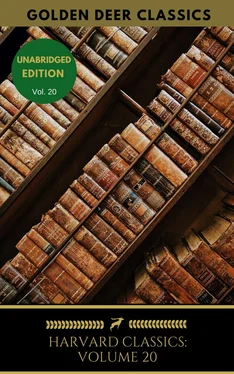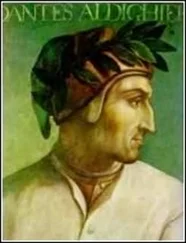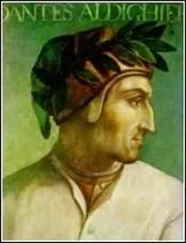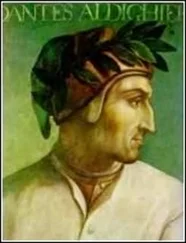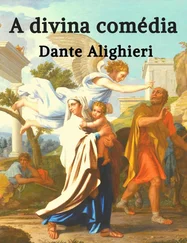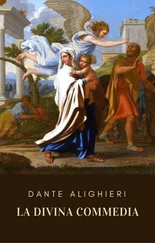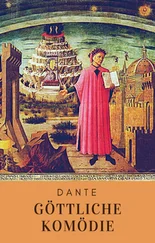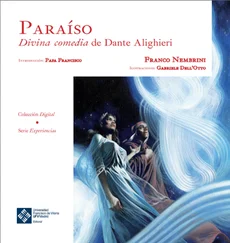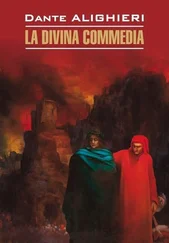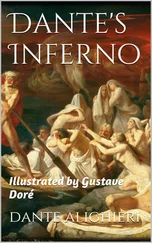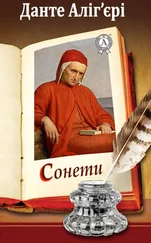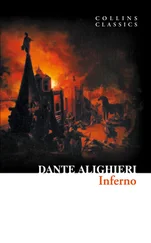Array Dante Alighieri - Harvard Classics Volume 20
Здесь есть возможность читать онлайн «Array Dante Alighieri - Harvard Classics Volume 20» — ознакомительный отрывок электронной книги совершенно бесплатно, а после прочтения отрывка купить полную версию. В некоторых случаях можно слушать аудио, скачать через торрент в формате fb2 и присутствует краткое содержание. Жанр: unrecognised, на английском языке. Описание произведения, (предисловие) а так же отзывы посетителей доступны на портале библиотеки ЛибКат.
- Название:Harvard Classics Volume 20
- Автор:
- Жанр:
- Год:неизвестен
- ISBN:нет данных
- Рейтинг книги:5 / 5. Голосов: 1
-
Избранное:Добавить в избранное
- Отзывы:
-
Ваша оценка:
- 100
- 1
- 2
- 3
- 4
- 5
Harvard Classics Volume 20: краткое содержание, описание и аннотация
Предлагаем к чтению аннотацию, описание, краткое содержание или предисловие (зависит от того, что написал сам автор книги «Harvard Classics Volume 20»). Если вы не нашли необходимую информацию о книге — напишите в комментариях, мы постараемся отыскать её.
1. The Divine Comedy, by Dante Alighieri
Also available:
The Complete Harvard Classics Collection (51 Volumes + The Harvard Classic Shelf Of Fiction)
50 Masterpieces You Have To Read Before You Die (Golden Deer Classics)
Harvard Classics Volume 20 — читать онлайн ознакомительный отрывок
Ниже представлен текст книги, разбитый по страницам. Система сохранения места последней прочитанной страницы, позволяет с удобством читать онлайн бесплатно книгу «Harvard Classics Volume 20», без необходимости каждый раз заново искать на чём Вы остановились. Поставьте закладку, и сможете в любой момент перейти на страницу, на которой закончили чтение.
Интервал:
Закладка:
A noise, as of a sea in tempest torn
By warring winds. The stormy blast of Hell
With restless fury drives the spirits on,
Whirl’d round and dash’d amain with sore annoy.
When they arrive before the ruinous sweep,
There shrieks are heard, there lamentations, moans,
And blasphemies ’gainst the good Power in Heaven.
I understood, that to this torment sad
The carnal sinners are condemn’d, in whom
Reason by lust is sway’d. As, in large troops
And multitudinous, when winter reigns,
The starlings on their wings are borne abroad;
So bears the tyrannous gust those evil souls.
On this side and on that, above, below,
It drives them: hope of rest to solace them
Is none, nor e’en of milder pang. As cranes,
Chanting their dolorous notes, traverse the sky,
Stretch’d out in long array; so I beheld
Spirits, who came loud wailing, hurried on
By their dire doom. Then I: “Instructor! who
Are these, by the black air so scourged?” “The first
’Mong those, of whom thou question’st,” he replied,
“O’er many tongues was empress. She in vice
Of luxury was so shameless, that she made
Liking be lawful by promulged decree,
To clear the blame she had herself incurr’d.
This is Semiramis, of whom ’tis writ,
That she succeeded Ninus her espoused;
And held the land, which now the Soldan rules.
The next in amorous fury slew herself,
And to Sichæus’ ashes broke her faith:
Then follows Cleopatra, lustful queen.”
There mark’d I Helen, for whose sake so long
The time was fraught with evil; there the great
Achilles, who with love fought to the end.
Paris I saw, and Tristan; and beside,
A thousand more he show’d me, and by name
Pointed them out, whom love bereaved of life.
When I had heard my sage instructor name
Those dames and knights of antique days, o’erpower’d
By pity, well-nigh in amaze my mind
Was lost; and I began: “Bard! Willingly
I would address those two together coming,
Which seem so light before the wind.” He thus:
“Note thou, when nearer they to us approach.
Then by that love which carries them along,
Entreat; and they will come.” Soon as the wind
Sway’d them towards us, I thus framed my speech:
“O wearied spirits! come, and hold discourse
With us, if by none else restrain’d. As doves
By fond desire invited, on wide wings
And firm, to their sweet nest returning home,
Cleave the air, wafted by their will along;
Thus issued, from that troop where Dido ranks,
They, through the ill air speeding: with such force
My cry prevail’d, by strong affection urged.
“O gracious creature and benign! who go’st
Visiting, through this element obscure,
Us, who the world with bloody stain imbrued;
If, for a friend, the King of all, we own’d,
Our prayer to him should for thy peace arise,
Since thou hast pity on our evil plight.
Of whatsoe’er to hear or to discourse
It pleases thee, that will we hear, of that
Freely with thee discourse, while e’er the wind,
As now, is mute. The land, [32]that gave me birth,
Is situate on the coast, where Po descends
To rest in ocean with his sequent streams.
“Love, that in gentle heart is quickly learnt,
Entangled him by that fair form, from me
Ta’en in such cruel sort, as grieves me still:
Love, that denial takes from none beloved,
Caught me with pleasing him so passing well,
That, as thou seest, he yet deserts me not.
Love brought us to one death: Caïna [33]waits
The soul, who spilt our life.” Such were their words;
At hearing which, downward I bent my looks,
And held them there so long, that the bard cried:
“What art thou pondering?” I in answer thus:
“Alas! by what sweet thoughts, what fond desire
Must they at length to that ill pass have reach’d!”
Then turning, I to them my speech address’d,
And thus began: “Francesca! [34]your sad fate
Even to tears my grief and pity moves.
But tell me; in the time of your sweet sighs,
By what, and how Love granted, that ye knew
Your yet uncertain wishes?” She replied:
“No greater grief than to remember days
Of joy, when misery is at hand. That kens
Thy learn’d instructor. Yet so eagerly
If thou art bent to know the primal root,
From whence our love gat being, I will do
As one, who weeps and tells his tale. One day,
For our delight we read of Lancelot, [35]
How him love thrall’d. Alone we were, and no
Suspicion near us. Oft-times by that reading
Our eyes were drawn together, and the hue
Fled from our alter’d cheek. But at one point
Alone we fell. When of that smile we read,
The wished smile so raptorously kiss’d
By one so deep in love, then he, who ne’er
From me shall separate, at once my lips
All trembling kiss’d. The book and writer both
Were love’s purveyors. In its leaves that day
We read no more.” While thus one spirit spake,
The other wail’d so sorely, that heart-struck
I, through compassion fainting, seem’d not far
From death, and like a corse fell to the ground.
Canto VI
Argument.—On his recovery, the Poet finds himself in the third circle, where the gluttonous are punished. Their torment is, to lie in the mire, under a continual and heavy storm of hail, snow, and discolored water; Cerberus, meanwhile barking over them with his threefold throat, and rending them piecemeal. One of these, who on earth was named Ciacco, foretells the divisions with which Florence is about to be distracted. Dante proposes a question to his guide, who solves it; and they proceed toward the fourth circle.
My sense reviving, that erewhile had droop’d
With pity for the kindred shades, whence grief
O’ercame me wholly, straight around I see
New torments, new tormented souls, which way
Soe’er I move, or turn, or bend my sight.
In the third circle I arrive, of showers
Ceaseless, accursed, heavy and cold, unchanged
For ever, both in kind and in degree.
Large hail, discolor’d water, sleety flaw
Through the dun midnight air stream’d down amain:
Stank all the land whereon that tempest fell.
Cerberus, cruel monster, fierce and strange,
Through his wide threefold throat, barks as a dog
Over the multitude immersed beneath.
His eyes glare crimson, black his unctuous beard,
His belly large, and claw’d the hands, with which
He tears the spirits, flays them, and their limbs
Piecemeal disparts. Howling there spread, as curs,
Under the rainy deluge, with one side
The other screening, oft they roll them round,
A wretched, godless crew. When that great worm [36]
Descried us, savage Cerberus, he oped
His jaws, and the fangs show’d us; not a limb
Of him but trembled. Then my guide, his palms
Expanding on the ground, thence fill’d with earth
Raised them, and cast it in his ravenous maw.
E’en as a dog, that yelling bays for food
His keeper, when the morsel comes, lets fall
His fury, bent alone with eager haste
To swallow it; so dropp’d the loathsome cheeks
Of demon Cerberus, who thundering stuns
The spirits, that they for deafness wish in vain.
We, o’er the shades thrown prostrate by the brunt
Of the heavy tempest passing, set our feet
Upon their emptiness, that substance seem’d.
They all along the earth extended lay,
Save one, that sudden raised himself to sit,
Читать дальшеИнтервал:
Закладка:
Похожие книги на «Harvard Classics Volume 20»
Представляем Вашему вниманию похожие книги на «Harvard Classics Volume 20» списком для выбора. Мы отобрали схожую по названию и смыслу литературу в надежде предоставить читателям больше вариантов отыскать новые, интересные, ещё непрочитанные произведения.
Обсуждение, отзывы о книге «Harvard Classics Volume 20» и просто собственные мнения читателей. Оставьте ваши комментарии, напишите, что Вы думаете о произведении, его смысле или главных героях. Укажите что конкретно понравилось, а что нет, и почему Вы так считаете.
